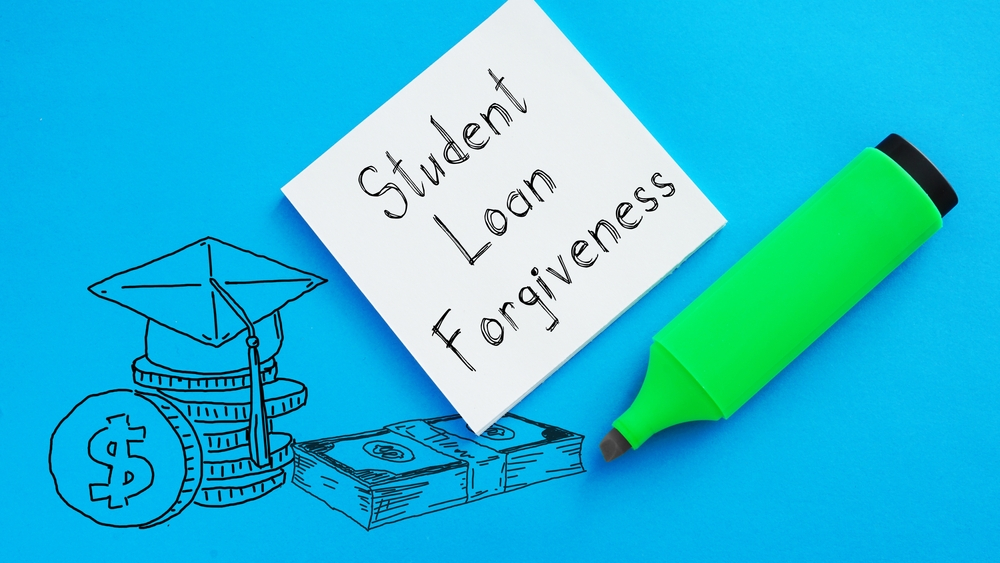News
Student Loan Forgiveness For Nurses: A Quick Guide

Choosing a career as a nurse is an excellent opportunity to help people. It can also help you provide for your own needs. However, nursing education might result in substantial student loan debt and high monthly payments.
Several federal and state loan forgiveness programs have been established due to the increased need for nurses. These student loan forgiveness for nurses can help you manage your nursing student loans.
This guide will show you the options available to choose from.
Let’s begin.
Table of Contents
Biden’s Student Debt Relief Plan
Biden’s administration will forgive federal student loans to ease the student loan crisis. All eligible borrowers will receive a $10,000 forgiveness, and Pell Grant recipients will receive a $20,000 forgiveness.
To be eligible, you must:
Earn under $125,000 (or, for married couples, under $250,000)
Have federal loans (The forgiveness doesn’t apply to private loans)
You can visit the government’s website for student financial aid to learn more about Biden’s Student Debt Relief Plan.
5 Student Loan Forgiveness For Nurses
1. The Public Service Loan Forgiveness Program
The most popular nursing loan forgiveness program is the PSLF program. Nurses who complete the public service program’s 120 non-consecutive payment requirements and work full-time are eligible for loan forgiveness.
To qualify, nurses must put in 30+ hours of work (for a non-profit or the government).
You can combine your hours if you hold multiple jobs. To become eligible, you must have your employer complete the necessary documentation.
You must change to an IDR plan to benefit from the PSLF. These plans use your income to calculate your monthly expenses. By switching, you can erase more debt and reduce your payments.
Application Procedures For PSLF Programs
You can apply once you’ve made the 120 required qualifying monthly payments and are still employed by the same company. Once the application is completed, mail it along with the employer certification form to the U.S. Education Department.
2. NIH Loan Repayment Programs
The National Institutes of Health (NIH) wants to draw in medical professionals. Therefore, the program reduces certain student loan burdens and makes this place more desirable, which is how it operates.
NIH loan repayment program allows researchers to earn up to $50,000 annually, regardless of the type of debt they owe. So you can have federal, private, or HHS loans, which wouldn’t matter.
Everyone is qualified, including dentists, pharmacists, nurse practitioners, physician assistants, and doctors. Additionally, a position within or outside the NIH may be considered extra-mural (inside the NIH).
3. Nurse Corps Loan Repayment Program
This program is intended for:
- Advanced practice registered nurses like nurse practitioners
- Nurse faculty
- Registered nurses
You must work in underserved neighborhoods for a critical shortage facility or a qualified nursing program. Additionally, you must have completed your nursing education at a nursing program approved in a state or territory of the United States.
The program covers up to 85% of unpaid nursing school expenses for three years of employment. The program may be extended for a third year after your two-year service commitment to allow you to qualify for the complete 85%.
Nevertheless, you must pay taxes on any money you receive from the program. This loan forgiveness program for nurses is available online.
4. Indian Health Services Loan Repayment Program
A medical practitioner can serve Alaska Natives or American Indian communities in exchange for repaying $40,000 in student loans for a two-year term.
You can sign up for as many one-year terms as possible following the original two-year commitment. Any medical professional may apply. The service communities, however, are given priority.
5. Military Loan Forgiveness For Nurses
Various student loan forgiveness options are available to nurses through the U.S. military. However, people who haven’t yet served in the military are the only ones who can choose from any military repayment options.
Payments are made on the outstanding principal balance of your student loans. It’s the same as all other military college loan repayment plans. But they don’t include any interest that has accumulated.
Additionally, unlike PSLF, loan repayment is reported to the IRS each year as taxable income. Payments are made straight to your lender under the military repayment plans. Furthermore, tax withholdings are made for the IRS before payments are made.
Final Thoughts
No matter the decisions the Biden administration takes, you must take charge of your student debts. Then you can use the debt relief provided by the healthcare loan forgiveness program.
This guide will help you determine which of several loan cancellation programs is best for your circumstances. You should consult a student loan expert if unsure what to do.
Following these tips should help you get the most out of taking Fashion 5elifestyle.













